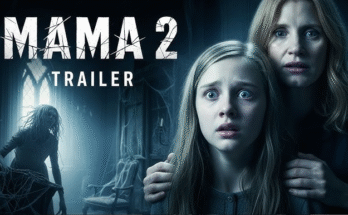The sirens fade. The gates lock. The campus dies — and then it begins again. Zomvivor, Netflix’s Thai survival horror phenomenon, takes the zombie genre and gives it a jolt of adrenaline, culture, and chaos. Released on October 31, 2025, it’s a blood-stained fever dream that turns college life into a war for humanity’s final lesson: adapt or perish.

The series opens on an ordinary university night — students prepping for exams, parties, and heartbreak — until the lights flicker and screams echo through the dorms. Within minutes, civilization collapses into panic. The infection spreads with terrifying precision, each episode charting the survivors’ descent from order into primal fear.
At the story’s center is Lena (Punpun Sutatta Udomsilp), a medical student whose intelligence becomes her weapon and her curse. As the outbreak intensifies, she leads a group of unlikely allies — a cynical gamer, a guilt-ridden professor, and a campus guard with too many secrets — through classrooms that have become catacombs.

Director Puttipong Nakthong infuses every frame with grit and atmosphere. The camera moves like a ghost through flickering hallways, catching glimpses of horror in reflections, glass doors, and shadows that move before the characters do. The sound design crackles with claustrophobia — whispers in the dark, footsteps on tile, and the rhythmic groan of something learning how to speak again.
But what makes Zomvivor more than another undead saga is its emotion. Beneath the gore lies grief — for youth, for trust, for the illusion that life could ever return to normal. Each episode reveals not just how the infection spreads, but why it exists: a government experiment gone wrong, or maybe a curse older than science. The answer shifts like the virus itself.
Performances are stellar. Punpun anchors the show with quiet determination; Tor Thanapob as her estranged brother adds layers of guilt and redemption; March Chutavuth delivers levity before tragedy swallows him whole. Their chemistry makes every death hurt, every scream feel earned.

By mid-season, the zombies evolve — faster, smarter, terrifyingly coordinated. What begins as outbreak survival turns into a chess match between instinct and intellect. The twist: the infection remembers. Victims whisper names. They look for loved ones. They hesitate.
Visually, Zomvivor is stunning — neon lights cutting through fog, rain slicking the blood-stained pavement, and drones capturing aerial shots of the campus turned war zone. The aesthetic feels like Train to Busan colliding with The Last of Us, but pulsing with Thai soul and mythology.
The final episode, “Graduation Day,” is pure dread poetry. Lena broadcasts her final message from a ruined lecture hall:
“We thought knowledge would save us. Maybe it was just another way to remember what we’ve lost.”
The signal cuts. The screen flickers. Then a faint heartbeat — and the promise that the virus isn’t done learning.
💬 Series Verdict:
⭐ 9.3/10 — Relentless, emotional, and hauntingly intelligent. “Zomvivor” redefines Thai horror with ferocity and depth — proving the scariest monsters aren’t the ones chasing you… they’re the ones you become. 🧟♂️🔥




